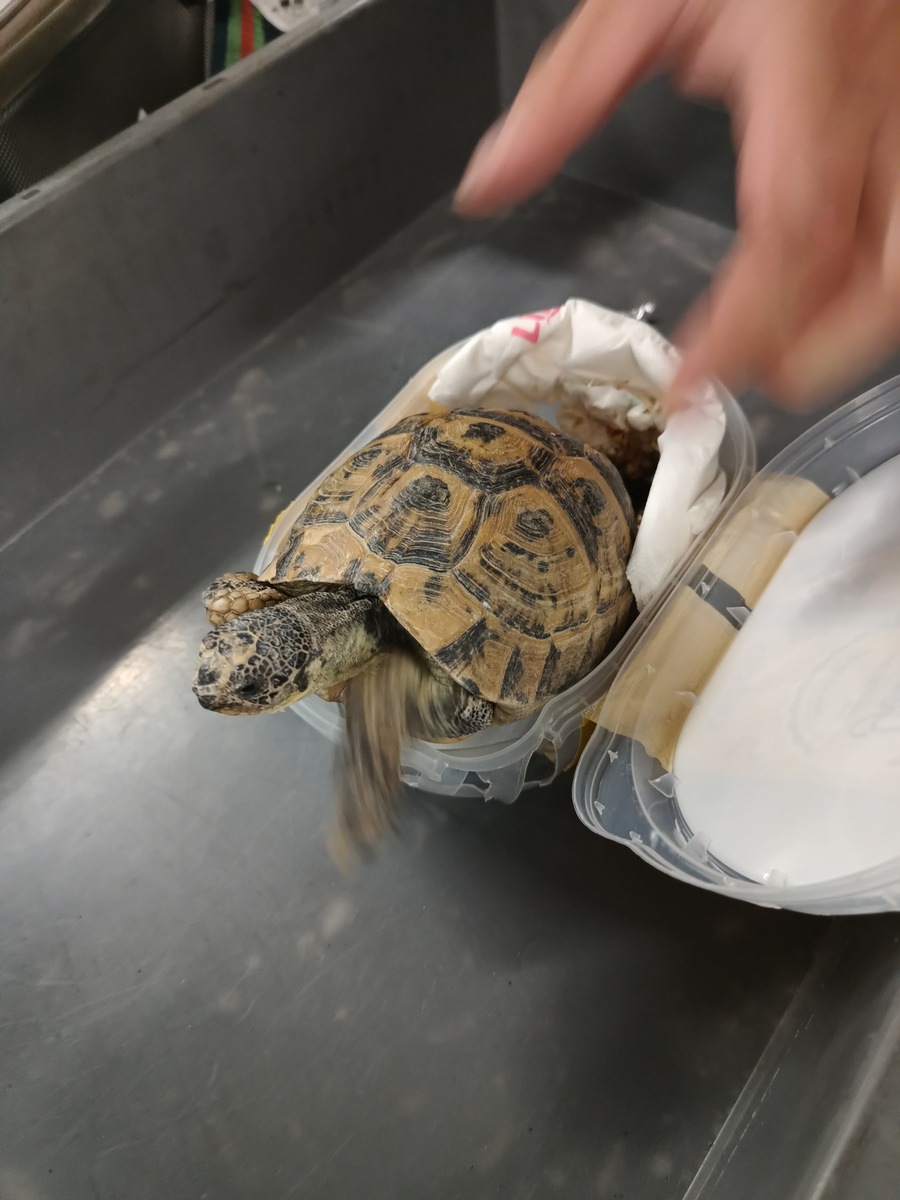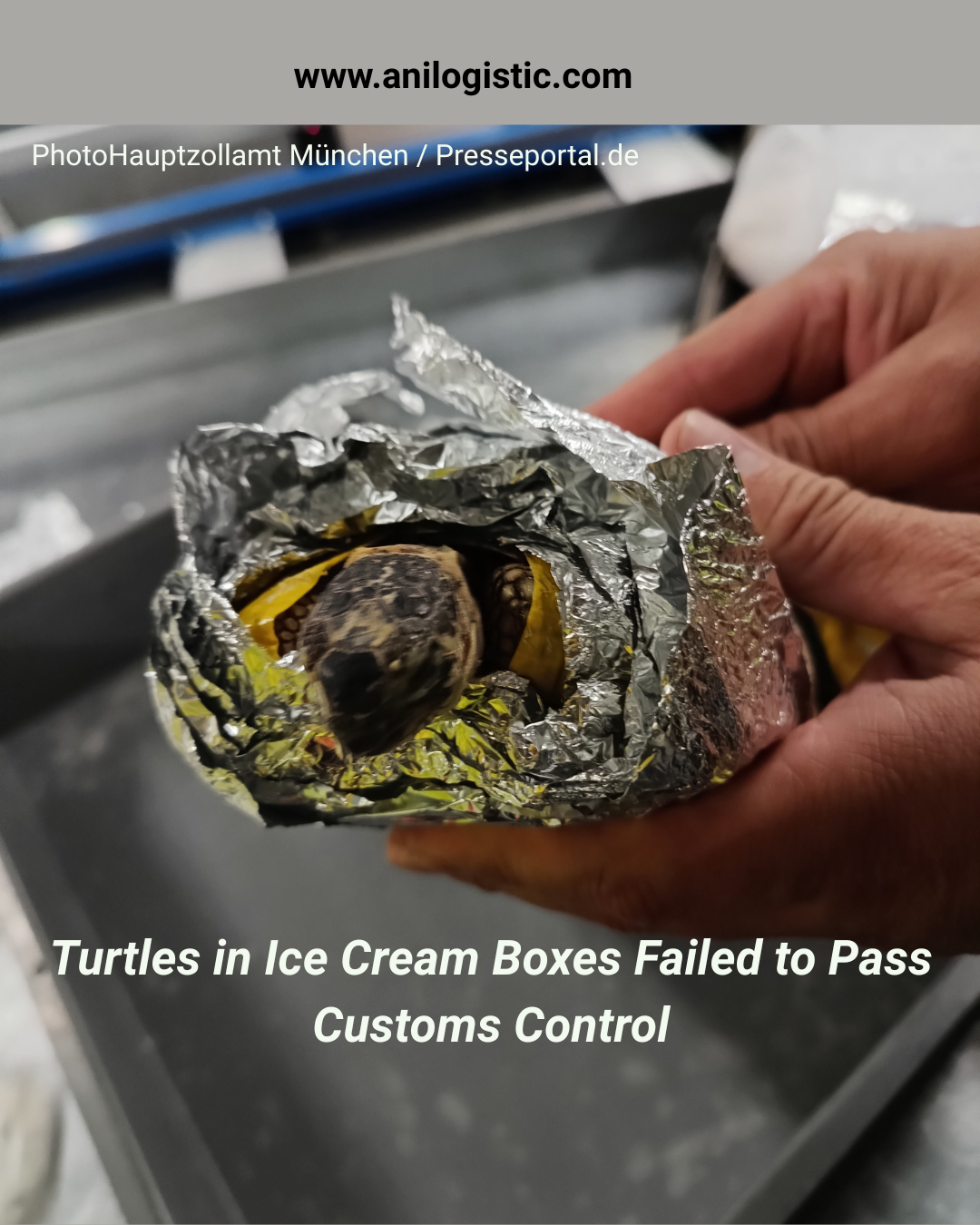During a baggage inspection at Munich Airport, officers from the Main Customs Office (Hauptzollamt München)discovered seven live Tunisian tortoises hidden in empty plastic ice cream containers inside a passenger’s suitcase.
The animals had been locked without access to water or food, and some were partially restrained with adhesive tape.
The animals had been locked without access to water or food, and some were partially restrained with adhesive tape.
According to Thomas Meister, spokesperson for the Main Customs Office, a criminal case has been initiated against the passenger:
“Since the required species protection documents could not be provided, criminal proceedings have been initiated,” Meister stated.

Tunisian tortoises (Testudo graeca nabeulensis) are listed under Annex II of the Washington Convention (CITES) and Annex A of the EU Regulation on the Protection of Species, which means that their transport, purchase, and sale without official authorization are strictly prohibited.
The animals were confiscated and taken to a specialized reptile rescue center in Munich, where they received veterinary care and were placed in conditions appropriate to their species.
The investigation is being carried out by the Munich Customs Investigation Office (Zollfahndungsamt München).
The investigation is being carried out by the Munich Customs Investigation Office (Zollfahndungsamt München).
Any species protected under the CITES Convention may only be transported with an official import or export permit, documentation confirming the animal’s origin, and veterinary certificates.
Violation of these regulations carries criminal penalties, including fines and confiscation of the animals.
Violation of these regulations carries criminal penalties, including fines and confiscation of the animals.
This case once again highlights the vulnerability of the wildlife trade, where demand dictates supply and living beings become commodities.
Border control and the enforcement of international conventions remain key tools in combating this form of crime, but equally important is public awareness and accountability.
As long as the demand for exotic animals persists, there will always be those willing to risk their lives for profit.
Border control and the enforcement of international conventions remain key tools in combating this form of crime, but equally important is public awareness and accountability.
As long as the demand for exotic animals persists, there will always be those willing to risk their lives for profit.
